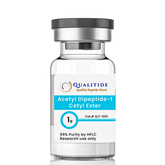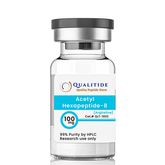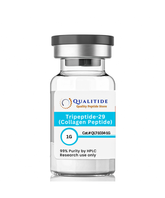The Science Behind Peptide Purity & Quality
Peptides are essential components in various fields, including pharmaceuticals, cosmetics, and research. The purity and quality of peptides play a crucial role in their effectiveness and safety. Let's delve into the science behind peptide purity and quality.
What is Peptide Purity?
Peptide purity refers to the percentage of the desired peptide in a sample, free from impurities or contaminants. The higher the purity, the more potent and reliable the peptide is for its intended use. Purity is typically measured using analytical techniques such as high-performance liquid chromatography (HPLC) or mass spectrometry.
Factors Affecting Peptide Purity
Several factors can impact the purity of peptides, including the quality of raw materials, synthesis methods, and purification processes. Contaminants or incomplete sequences can reduce the purity of the final peptide product, affecting its performance and safety.
Importance of Peptide Quality
Peptide quality goes hand in hand with purity and refers to the overall characteristics of the peptide, including its stability, solubility, and structural integrity. High-quality peptides are more likely to deliver consistent results and minimize the risk of adverse effects.
Ensuring High Peptide Purity and Quality
To ensure high peptide purity and quality, stringent quality control measures are essential throughout the manufacturing process. This includes rigorous testing at each stage, from raw material evaluation to final product analysis. Quality control protocols help identify and eliminate impurities, ensuring that the peptide meets the required standards.
Benefits of High Peptide Purity
High peptide purity offers several benefits, such as increased efficacy, reproducibility, and safety. Researchers and manufacturers rely on pure peptides to achieve accurate and reliable results in their experiments or products. Additionally, high purity reduces the risk of side effects or unwanted interactions, making the peptide more suitable for various applications.
Conclusion
Peptide purity and quality are critical factors that influence the performance and safety of peptides in different industries. Understanding the science behind peptide purity can help researchers, manufacturers, and consumers make informed decisions when selecting and using peptides for their specific needs.












